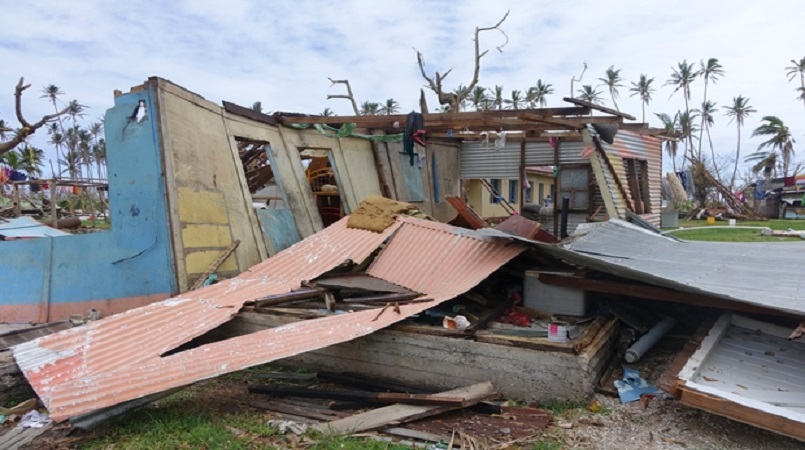
Fiji's prime minister on Saturday announced a range of measures to help the country rebuild after Cyclone Winston, including reforms of the building and construction sectors.
The package, announced by Frank Bainimarama in Suva, included grants for new building materials and a new, more stringent, building code.
"Cyclone Winston has not only brought the Fijian people together and made us stronger than before," Mr Bainimarama told a room full of government ministers and dignitaries, "it has also helped identify a number of gaps that we urgently need to address."
The category five cyclone devastated much of the country when it struck seven weeks ago. It killed 44 people and left thousands more homeless.
The package, which is expected to cost the Fiji government at least $US35 million, provides for households earning under $US25,000 a year to be able to apply for pre-paid electronic cards to buy building materials from a variety of retailers.
The cards would be loaded with up to $US3500, depending on the level of damage sustained, and there would be additional relief for transporting goods to remote areas.
"My government's number one priority is to rebuild Fiji and to build back better - better than before, stronger than before," Mr Bainimarama said. "Public infrastructure and housing built to proper standards to withstand cyclones, and to save us the money and the misery Winston has caused us."
Mr Bainimarama also announced that the government would partner with the Fiji Institute of Engineers to reform the country's building standards - particularly for substandard public buildings, although little detail was provided about what those new standards would require.
"Many of the public buildings - including schools - erected in the past have failed to meet established building code practices, let alone the higher standards we are going to require in the future," Mr Bainimarama said. "This includes certain buildings financed by our development partners that haven't met the required standards."
He said the institute would help the government create new building standards that would allow the reconstructed Fiji to be future-proofed, particularly with the prediction that the Pacific would endure more frequent and devastating cyclones as a result of climate change.
"There is no point in rebuilding our public buildings only to have them come down in the next cyclone. Any new buildings must adhere to the required stringent standards to maximise our ability to endure the elements."
Mr Bainimarama also flagged changes to the country's insurance and construction industries, acknowledging that some mistakes had been made in the post-cyclone recovery efforts, but that the government was doing its utmost to not leave any Fijian behind.
But he also said support from the international community was crucial as the country recovered from one of its most devastating natural disasters.
"The cost of the relief effort so far has amounted to tens of millions of dollars as we cater for the immediate needs of those affected," he said. "But even more significant outlays lie ahead in the rebuilding phase - a commitment that will stretch our finances to the limit and require even more assistance from our development partners."
